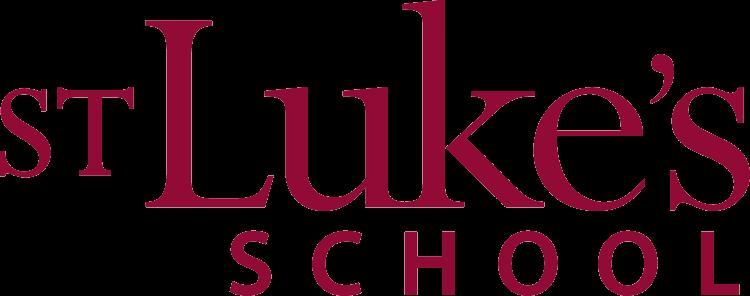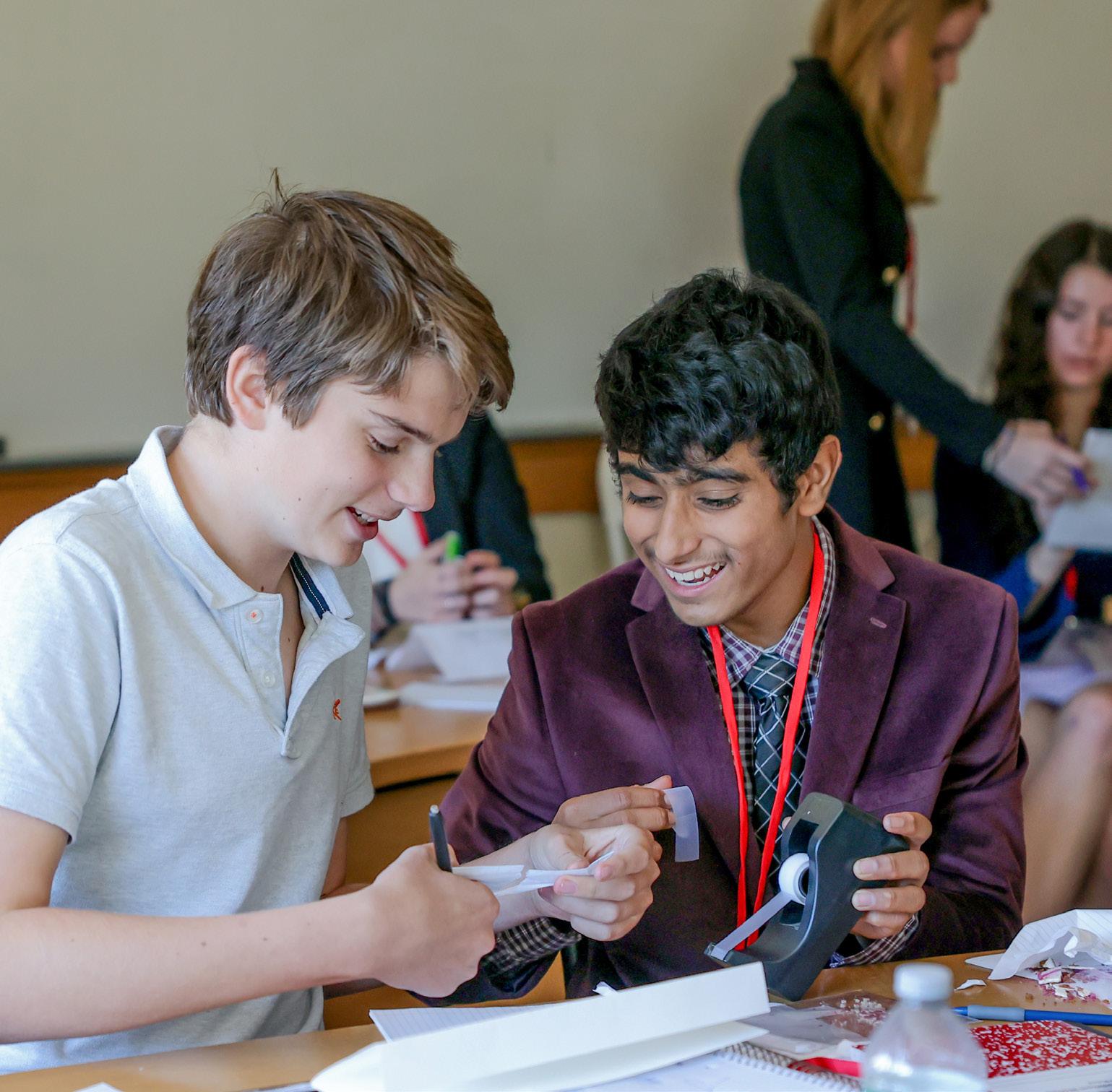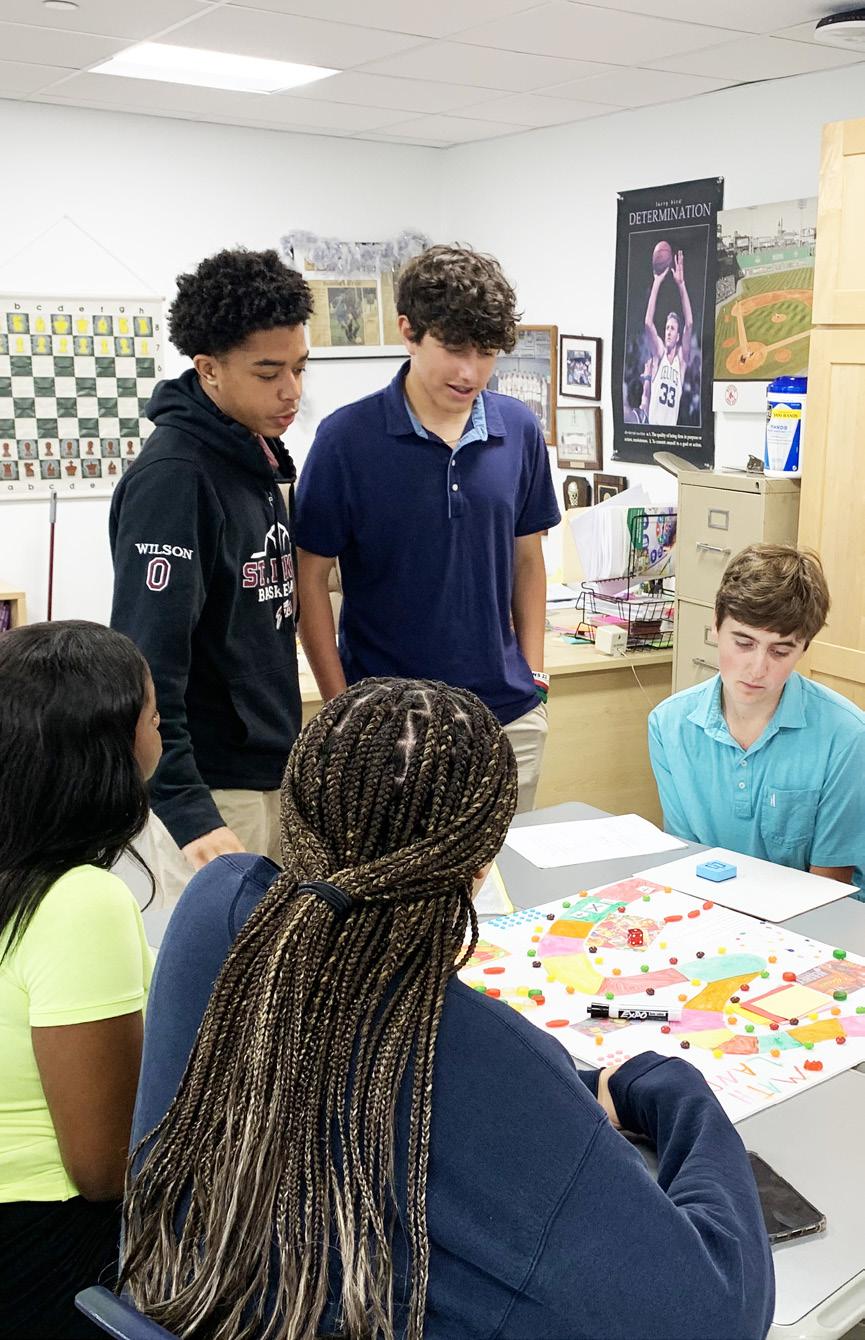How Diversity & Inclusion Enhance SLS Curriculum


At St. Luke’s, students are exposed to differing points of view, experiences, and beliefs as they grapple with complex human dynamics, a broad range of perspectives, hard histories, and social dilemmas to better understand the world.
These opportunities present themselves in developmentally appropriate ways in every grade and discipline as students self-reflect, engage with a different point of view, and prepare to thrive in a diverse society.
ARTS Performing Visual

Students have a direct route to diverse perspectives and empathy building as they engage with character work and the “greater human condition” via St. Luke’s Theater program and the stories that highlight different cultures. In addition, students are encouraged to write and produce their own work so that we can directly hear their own voices. The overarching goal is for all theater students to see themselves as “theater artists,” rather than actors, technicians, designers, dancers, or singers specifically.
In Middle School, art classes are shaped by themes that inspire student-designed projects. These themes are meant to provide open access points to all, to make connections between self and art-making, as well as between each other. Each theme is open to a vast array of interpretations and is simply a starting point. The goal of this student-driven model is for students to explore an idea in a personally engaging way, rather than creating art that looks a certain way. When artists are shared for inspiration, they reflect a wide range of backgrounds, cultures, styles, and perspectives to demonstrate that there is no one kind of person who makes art.
In Upper School, students initially learn the fundamentals of the elements and principles of art and design. As students progress further into the curriculum, they have increasingly more opportunities to express themselves in considerably personal ways. Art students at St. Luke’s are encouraged to create works that are meaningful to them as individuals, and may also resonate with others. Every student is treated as an individual on their own artistic journey and is therefore supported as much as possible to express themselves as individuals.
HUMANITIES
In Middle School English, teachers select readings that provide both “windows and mirrors” for students. This means that literature gives students “windows” into understanding different worlds, as well as “mirrors” through characters who resonate with them personally. In the same way, Middle School writing is an empowering exercise where students strengthen their unique voices and speak to their individual passions.
In Upper School, we continue the “windows and mirrors” approach through literature that reflects the wide range of individual experiences of a collective, complex world. We aim to instill compassion in our students and help them develop ethical frameworks. Students reflect on their own experiences to better understand themselves, and on the experiences of others unlike them to better understand the wider world. The English department’s reading selections include canonical and underrepresented perspectives, naturally inviting conversations about the different ways social, historical, economic, and cultural forces affect people differently.
English History
In Middle School History, students explore local, national, and global cultures, as they grapple with current events, changing and conflicting values. Over the course of four years, students consider human rights on a global scale and how different people, cultures, and religious groups see the world, express their beliefs, and establish their values. These lessons are aided by Harkness pedagogy which emphasizes skills of listening and perspective-taking. Multiple perspectives are further encouraged with a Learning for Justice resource that sets the norms for using key terms to understand history and America. Students consider how America formed politically, with consideration of the impact of enslavement and Westward Expansion.
In Upper School History, pedagogical approaches at every level require students to consider the meaning of evidence from multiple perspectives. Teachers encourage close reading and interpretation of historical evidence and expect students to reach rational conclusions from such evidence, but also push students to consider multiple ways of interpreting such evidence before reaching such conclusions. In addition, teachers encourage expressions of student individuality and perspective-sharing in daily lessons. Increasingly, student choice in research topics gives students agency to direct their own learning about topics of personal relevance. Over the course of their Upper School experience, students examine issues of individual identity, political power, collective action, and historical interpretation.

The Department of Leadership Studies offers courses designed to study leadership with an academic lens. In a world where rapid change regularly redefines the future, the courses ask students to engage in collaborative study that broadens ethical understanding, increases empathy, shapes multicultural perspectives, and serves the greater good. With the exception of Debate 8, Leadership Studies courses are elective course offerings in the Upper School. The courses are united in their goals of teaching leadership skills: civil discourse, perspectivetaking, ethical reasoning, collaboration, and problem-solving. In all of the courses, students are exposed to and discuss differing worldviews, frames of thought, and cultural systems. Courses examine power structures, access to resources, how and by whom stories are told, and community-based approaches to problem-solving.

Leadership Studies Library
In Middle School, research and news literacy are skills taught in library classes for grades 5 and 6. Students people search, read, consider and evaluate results, and ingest news based on their identities and perspectives. Each week in the library, Middle School students read books as a class that cover different points of view, experiences, and perspectives. Read-alouds are always paired with a discussion about relevance to their personal identities and lives.
The library supports Upper School division faculty and students by collaborating on projects, assignments, and events aimed at cultivating a culture of reading among Upper School students and growing students’ information literacy. As they grow in their research skills, students are encouraged to view research as an ongoing conversation in which authority is constructed and contextual. Through the library, students have access to books and digital resources representing diverse perspectives and experiences.
World Langauge
At St. Luke’s, World Language teachers teach both language and culture. In World Language, teachers are deliberate about how they choose and present content both via textbooks and supplemental materials. Beyond the classroom, the World Language department makes efforts to inform members of the larger SLS community about people, practices, languages, and issues from many parts of the world, and to include their own life experiences in that work. Through videoconferencing, travel opportunities, guest speakers, and local community in-person involvement, students have chances to use their language skills to interact with others with the goal of gaining knowledge and insight and discovering new perspectives through doing so.
STEM
Computer Science projects are meant to highlight specific technical skills. However, for most larger projects, students are required to add their own experience and perspective within the constraints put forth in the project description. Sound problem solving in general, particularly software development, is always asking “but what about…” as a functionality filter, and this also applies to user empathy.
Engineering class students are encouraged to give and receive critical feedback, which invites multiple points of view, experiences, beliefs, etc. Upper-level courses emphasize perspective-taking, for example, taking the perspective of a client and learning what their needs are when designing a product.
Computer Science & Engineering Science
In Middle School, science teachers consciously look for diverse representation in videos to provide “windows and mirrors.” For instance, the 6th-grade climate change project includes role play where students speak from the perspective of their country and how climate change affects them. The Human Body project is linked to malnutrition and how it directly affects a specific body system depending on your access to healthy food, clean water, and good doctors. Given the research on gender bias, intentional space is created for girls to see themselves as scientists and engineers.
The Upper School Science Department strives to create a safe space for students to explore their interests. Teachers provide an open forum for discussion, create time for academic support, and encourage collaboration. Classroom activities and readings may offer opportunities to explore current and historical perspectives through the lens of ethical dilemmas and issues of injustice. Videos and other media are vetted to ensure there is a representation of other cultures and backgrounds for students. Students are encouraged to seek unique ways to problem solve, ask and answer questions, and approach interpretation and explanation.

Math
In Middle School Math, there is a careful consideration of individual learners and the differing experiences in math that students have prior to coming to SLS. There is an emphasis on building student collaboration with social skills and communication to work successfully together. Methodologies, such as Building Thinking Classrooms, encourage systematic, explicit opportunities to collaborate and learn together where all voices are heard and valued. Word problems are composed to have relevance including data that speaks to our mission of inspiring a strong moral compass and a commitment to serve (i.e. wage gap, food insecurities). To promote accessibility, students are offered Math Lab hours, extra help hours, and videos to meet their various needs.
In Upper School Math, students are tasked with working in random groups to solve non-routine problems and extend their thinking. This requires them to be active listeners to their peers to work together effectively. These practices encourage collaboration and diversity of perspectives. In addition, students are challenged to reflect on their own math identity as they encounter challenging math problems and develop skills to reach out for help from individuals they might not have a close relationship with. Students are encouraged to seek help in the Math Lab from a peer or a teacher they might have never met before, who is also in that space. In this inclusive space, all math learners are welcome no matter their ability. Thereby, students and faculty work collaboratively to learn from one another, push their thinking, and become their best math selves.









